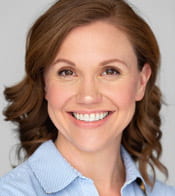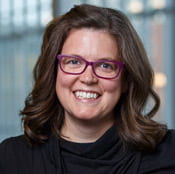
“One gives freely, yet grows all the richer; another withholds what he should give, and only suffers want. Whoever brings blessing will be enriched, and one who waters will himself be watered.” – Proverbs 11:24-25
What I learned about giving I learned from the senior deacon at the Baptist church I attended as a child. He was also my grandfather.
The nickels, dimes, and quarters I saved during the week were just enough for me to give to the children’s offering, in addition to purchasing candy and chips my grandfather sold after church. In those days, a few coins went a long way. It was the ’70s, so you could still buy bubble gum or Mary Janes with a nickel.
When it was time for me to attend college, I discovered I would receive a scholarship from the church to help with books, some of that scholarship coming from my 10 years of giving to the children’s offering and purchasing treats from my grandfather.

Like so many Black churches, the church of my youth provided college scholarships. To the best of my knowledge, there were no scholarship or fundraising events to launch this fund. My grandfather was the silent architect of this program. Each nickel, dime, and quarter the church youth exchanged for candy and chips, my grandfather matched and used to create an account for a college scholarship fund.
The church also added the children’s offering to this fund. The youth of the church collectively saved for the future without knowing it. There were more than 10 of us during my college years that received a few hundred dollars from this scholarship fund. My grandfather’s way of giving cultivated a spirit of generosity in the church’s youth along with the development of a college scholarship fund.
This Black Church “tradition of mutual aid lay deep in the African heritage, which stressed a greater communalism and social solidarity” and is still needed to empower Black youth and their communities.
A history of giving
From its inception in 1750, the Black Church served as a vehicle facilitating the giving of Black people regardless of their station in life. While research on Black church giving is still rare, the practice is quite exceptional.
Black people typically give a larger share of their income to their congregations. In The Philadelphia Negro at the end of the 19th century, W.E.B. Du Bois, among the first to document the charitable efforts of Black Baptists, calculated those efforts as $100,377 for missions.
W.E.B Du Bois also found that Philadelphia’s 55 Black congregations amassed a total annual income of at least $94,968 and property valued at approximately $908,729, approximately $34 million in today’s dollars. Over 100 years later, Dr. Ram Cnaan and our team of the University of Pennsylvania researchers document in the Philadelphia Census of Congregations study over 700 Black churches offering a diverse range of programs giving back to both members and the broader community.
The financial impact of Philadelphia’s Black congregations has multiplied as the contribution of each one is now more than $900,000.
Giving back continues today
In Nashville, Tennessee, one Black church, Schrader Lane Church of God, has been multiplying its giving since 2000 through an asset building program launched with a predominately white congregation. This program offered through Christian Community Services Inc. continues to serve low-income/low-wealth families.
The Individual Development Account (IDA), a matched savings program established by Michael Sherraden in 1990, is the core component of their asset-building program. Here, church funding is leveraged to attract new public and private resources and matched 2:1 with the families’ saving funds.
Over 300 participating families have used their funds for homeownership, education, small business development, or renting an apartment. The demand for this program has increased during the pandemic.
In the recent Everyday Donors of Color: Diverse Philanthropy During Times of Change report, Una Osili, Ph.D., and her colleagues highlight the continued trends of Black giving closely linked to faith. Most notably, this research found Black households (50 percent) are more likely to give to religious organizations than Hispanic (41 percent), non-Hispanic White (38 percent), and Asian households (30 percent).
Study participants reported that after George Floyd was killed in May 2020, giving to support social justice causes increased across all racial and ethnic groups. In general, this giving was not sustained. However, faith leaders like Jamye Wooten are reshaping philanthropy with new ways to give to communities historically overlooked by elite donors.
In 2019, Wooten launched CLLCTIVLY as the first place-based social change organization to foster collaboration, increase social impact, and amplify the voices of Black-led organizations in Greater Baltimore. He draws from the Black Church tradition of giving and a long history of economic cooperative movements within the Black community to advance social justice fundraising and asset-building.
CLLCTIVLY’s 140-plus Black-led organizations pool resources to meet the needs of their members and the broader community through Funds for Black Futures projects and other participatory grantmaking activities. To provide relief for Baltimore’s Black-led businesses during the pandemic, Baltimore Ravens defensive end Calais Campbell and Rockefeller Foundation joined forces to give $200,000 through CLLCTIVLY.
With continued economic challenges for a disproportionate number of Black households due to the coronavirus pandemic, we can expect Black churches like the historic Alfred Street Baptist Church and Black faith leaders like Dr. Howard-John Wesley to create new ways to give and continue the legacy of Black church giving.
Stephanie Clintonia Boddie joined the Baylor University faculty in 2017 as an assistant professor of Church and Community Ministries with affiliations at the Diana R. Garland School of Social Work, the George W. Truett Theological Seminary, and the School of Education. Boddie is also a non-resident senior fellow at the University of Pennsylvania’s Program for Research on Religion & Urban Civil Society, a faculty associate at the Center for Social Development at Washington University in St. Louis, and a 2021-2022 Villanova Church Management Research Fellow.






